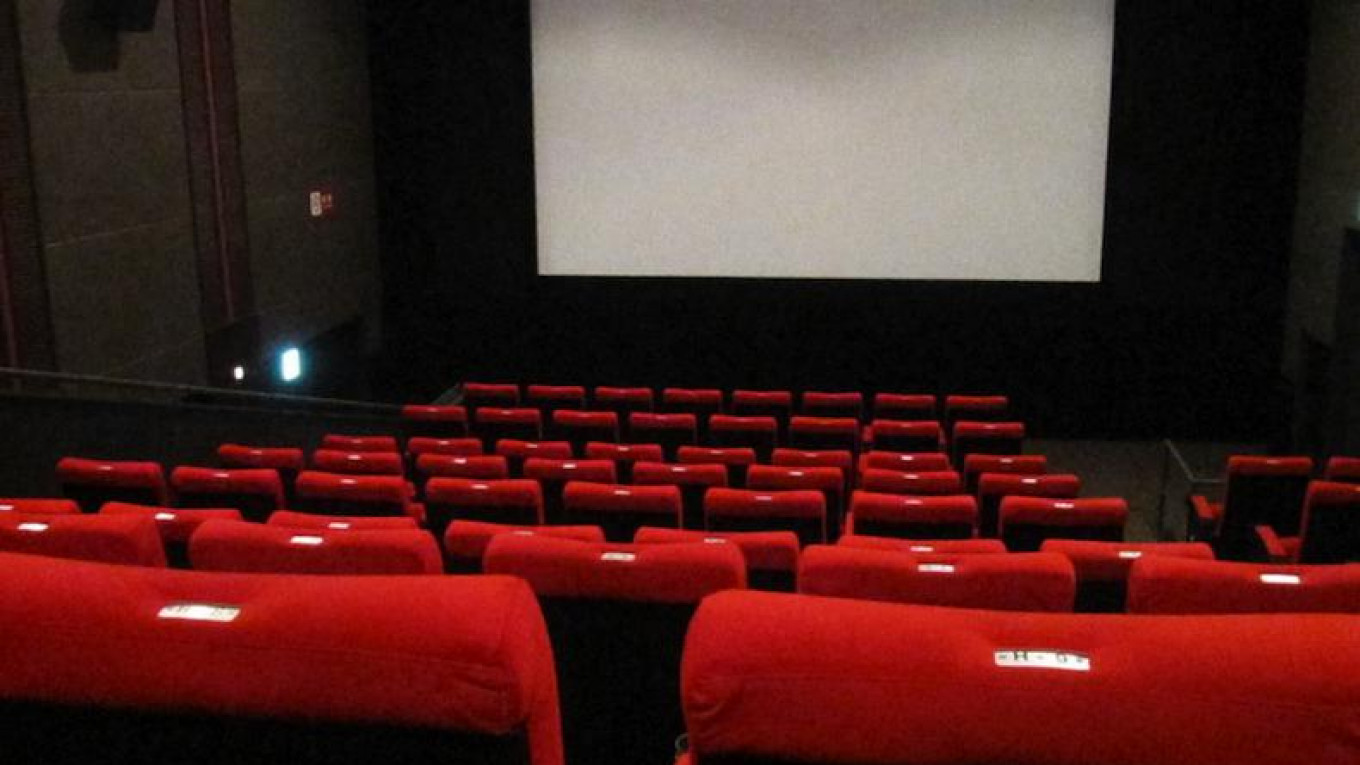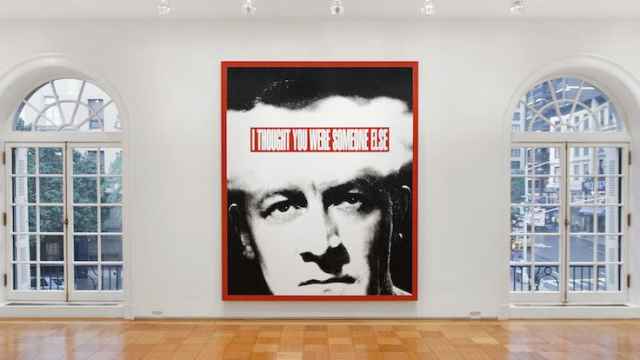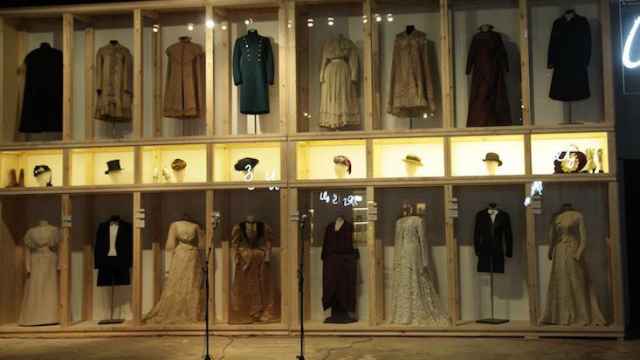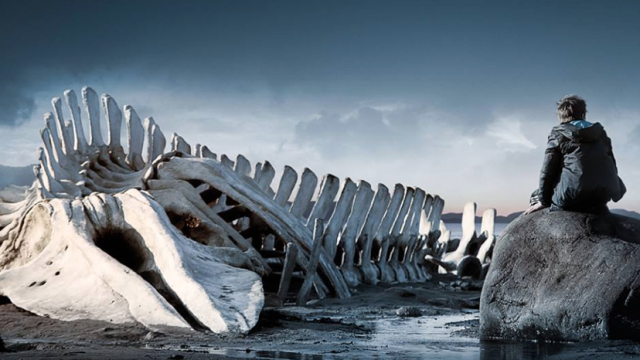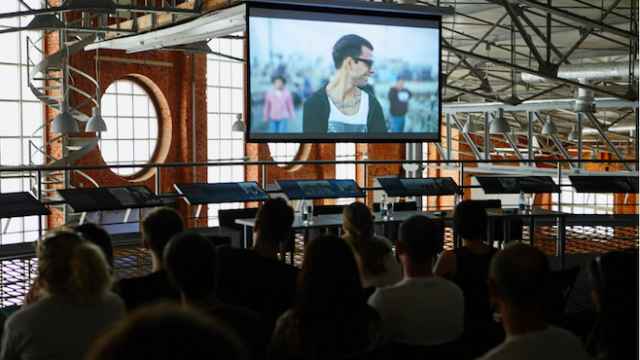When you max out on Olympics-watching this week — again — on Channel 1, Rossiya 1 and Match!, Moscow television will be ready with some stellar programming to vary your visual diet. Tune in this week for a biographical drama on Russia’s most popular modern singer-actor-poet, an award-winning Russian documentary on life under authoritarian rule and a Stalinist musical that people love, loathe and still whistle the tunes from.
Monday afternoon offers Vysotsky: Thanks for Being Alive, a memorable biographical drama about Vladimir Vysotsky’s turbulent final year. The film is based on a screenplay by the iconic singer-actor-poet’s son Nikita and directed by Pyotr Buslov. “Alive” was one of the most anticipated films of 2011 and, probably inevitably, one of the most controversial. Everyone has his own Vysotsky, and everyone wants him “preserved” just that way — which may or may not resemble the way Sergei Bezrukov’s carefully crafted performance presents him here.
The sadness evoked by the last year of any great artist’s life is multiplied by his youth — which is no less the case for Vysotsky, who died in 1980 aged just 42. That said, there’s something heartening in the fact that Vysotsky as we see him here knew a full year before his death that his time was at hand and thus spent his final months in ways he felt appropriate.
Vysotsky: Thanks for Being Alive “Vysotsky: Spasibo, Chto Zhivoi." TV1000 Russkoye Kino on Monday at 4:05 p.m.
Imagine you’d been born in an unstable society and then come of age as your homeland abandons democracy, passes intolerant laws and annexes chunks of its neighbors’ territory, all under a leader deemed infallible by the media. Yury Kuzavkov’s award-winning four-part documentary Moscow-Berlin: The War Was Tomorrow fills in the blanks for those whose imaginations need prompting. The documentary features a series of interviews with nine ordinary Germans born in the Weimar era but raised to adulthood under Hitler’s Third Reich. Their stories are revealing, touching and frightening by turns. The documentary was filmed in 2013 with support from the Russian Ministry of Culture.
Moscow-Berlin: The War Was Tomorrow “Moskva - Berlin. Zavtra Voina." Kultura, Tuesday through Friday at 1:15 p.m.
Wednesday evening is cross-cross-cultural night for Dom Kino viewers, offering The Man from Boulevard des Capucines, a bar-fighting, song-bursting late Soviet-era horse opera about the power of entertainment to change people's lives in America’s Wild West. As movie buffs know, the boulevard in question is the Paris address of the first paying-public movie theater where the Lumiere brothers spent the 1890s showing “motion pictures” for fun and profit. While this film created its share of both — drawing 60 million Soviet viewers in 1987 — at heart it’s really a good-spirited bit of proselytizing for cinema’s power to influence audiences. In the film Mr. First (Andrei Mironov) brings his newfangled “motion picture machine” to an otherwise hopelessly untamable western town, with surprising results. The film is directed by Alla Surikova from a screenplay by Eduard Akopov.
The Man from Boulevard des Capucines “Chelovek s Bulvara Kaputsinov.” Dom Kino, Wednesday at 7:00 p.m.
Is there a reason to watch a Stalinist musical comedy? Sure! Cossacks of the Kuban is classic fun-on-the-collective-farm entertainment that is worthwhile indeed for what it tells you about the duality of its era, its value as a technical achievement and its actual entertainment — in particular the songs. One of the first Soviet color productions, “Cossacks” was pulled from circulation in 1956 by Khrushchev and when it was re-released in 1968 the movie had been re-cut to suit post-Stalin sensibilities. Isaak Dunaevsky’s great score and upbeat songs remained however, and they are very real cultural heritage. “Cossacks” can infuriate people of course — especially those who themselves recall 1949 as rural disaster victims — but that doesn’t make the film less expertly crafted or historically symbolic.
Cossacks of the Kuban ”Kubanskiye Kazaki.” Channel 5, Friday at 00:00 a.m.
If Kafka had made movies, he might well have produced something like this “mystical tragicomedy” from director Karen Shaknazarov and writer Aleksandr Borodiansky. Zero City (1989) was both a loud shout down the dark tunnel of Perestroika-era Soviet reality and a fair description of various hallmark absurdities common to the general human experience of recent modernity. In the film Leonid Filatov plays a traveling bureaucrat named Varakin, who is by turns amazed and dumbstruck by the people and customs he encounters upon his arrival in a seemingly unremarkable Soviet town. As Shaknazarov later put it, “Zero” testifies that “our past is unknowable because it is constantly being mystified.” This film won prizes in Chicago, Bergamo and elsewhere.Tune in and be reassured: no, it’s not you...
Zero City “Gorod Zero.” Zvezda, Saturday at 3:05 a.m.
A Message from The Moscow Times:
Dear readers,
We are facing unprecedented challenges. Russia's Prosecutor General's Office has designated The Moscow Times as an "undesirable" organization, criminalizing our work and putting our staff at risk of prosecution. This follows our earlier unjust labeling as a "foreign agent."
These actions are direct attempts to silence independent journalism in Russia. The authorities claim our work "discredits the decisions of the Russian leadership." We see things differently: we strive to provide accurate, unbiased reporting on Russia.
We, the journalists of The Moscow Times, refuse to be silenced. But to continue our work, we need your help.
Your support, no matter how small, makes a world of difference. If you can, please support us monthly starting from just $2. It's quick to set up, and every contribution makes a significant impact.
By supporting The Moscow Times, you're defending open, independent journalism in the face of repression. Thank you for standing with us.
Remind me later.



